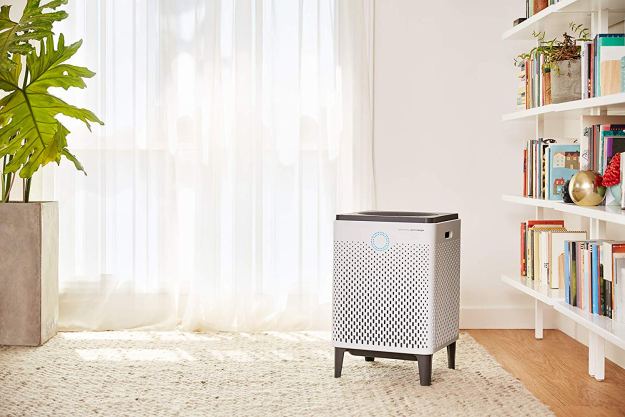In addition to sprucing up your home, some studies have found that plants can improve indoor air quality. Airy, a plug-less air purifier, recently developed a new version of its air cleaning system, the Airy Box.
First introduced on Kickstarter back in 2015, the Airy system is a plant pot that also serves as an air purifier. The Airy Box, currently available on Indiegogo, is nearly 20 inches wide and designed to hold two or three plants, which allows each individual system to have more air-cleaning power. The air purifier uses the chimney effect to draw dirty air into the bottom of the pot and uses substrates to filter out larger particles. The roots pull toxins out of the air better than the leaves, the Airy team claims.
Inventor Helge Knickmeier and the Airy team say that indoor air can more harmful for some than outdoor air, a claim supported by the . Airy claims its system makes it so a plant filters air up to eight times more effectively than a plant in a regular old pot. NASA research supports some of these claims. “The plant root-soil zone appears to be the most effective area for removing volatile organic chemicals. Therefore, maximizing air exposure to the plant root-soil area should be considered when placing plants in building for best air filtration,” according to NASA Interior Landscape Plants for Indoor Air Pollution Abatement report, which was published back in 1989.
Since the company’s official launch in January 2016, they have shipped roughly 20,000 original Airy units to 50 countries. The original Airy is priced at around $55 on Amazon and the new, larger version of the Airy is priced at $79 on Indiegogo.
As always, it’s a good idea to exercise caution with crowdfunded products. Backing a product is not the same thing as buying it from a place like Amazon, even if it has a history of releasing similar products like the Airy.
Editors' Recommendations
- SimpliSafe is now using AI to prevent burglars from entering your home
- Ikea’s new Dajlien home fitness collection features portable air purifier, much more
- Is an air quality monitor worth adding to your home?
- Can a robot vacuum work as an air purifier?
- Can you run an air purifier and essential oil diffuser at the same time?


